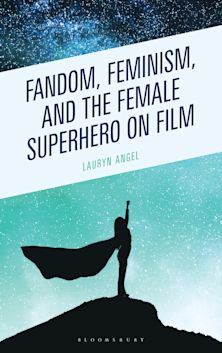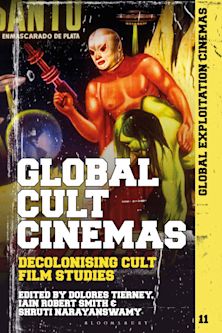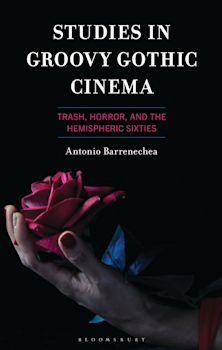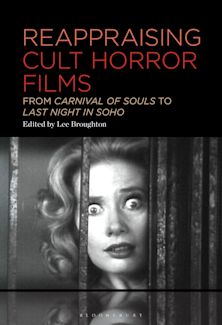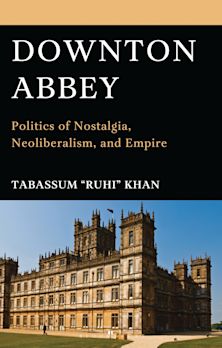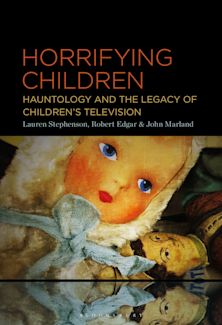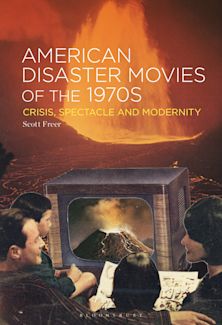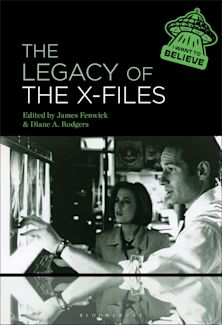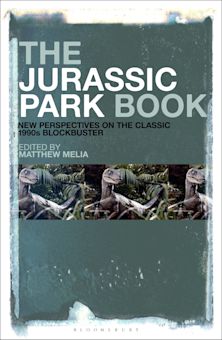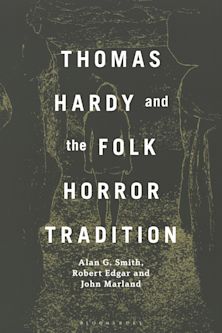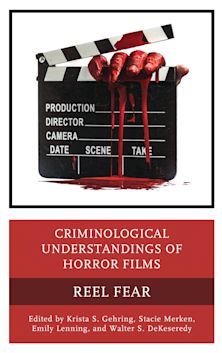- Home
- ACADEMIC
- Film & Media
- Film Genre
- Recovering 1940s Horror Cinema
Recovering 1940s Horror Cinema
Traces of a Lost Decade
Mario DeGiglio-Bellemare (Anthology Editor) , Charlie Ellbé (Anthology Editor) , Kristopher Woofter (Anthology Editor) , Paul Corupe (Contributor) , Blair Davis (Contributor) , Louise Fenton (Contributor) , Anne Golden (Contributor) , David Hanley (Contributor) , Karen Herland (Contributor) , Mark Jancovich (Contributor) , Kier-La Janisse (Contributor) , Cory Legassic (Contributor) , Peter Marra (Contributor) , Ian Olney (Contributor) , Dennis R. Perry (Contributor) , Selma Purac (Contributor) , Gary D. Rhodes (Contributor) , Rick Trembles (Contributor)
Recovering 1940s Horror Cinema
Traces of a Lost Decade
Mario DeGiglio-Bellemare (Anthology Editor) , Charlie Ellbé (Anthology Editor) , Kristopher Woofter (Anthology Editor) , Paul Corupe (Contributor) , Blair Davis (Contributor) , Louise Fenton (Contributor) , Anne Golden (Contributor) , David Hanley (Contributor) , Karen Herland (Contributor) , Mark Jancovich (Contributor) , Kier-La Janisse (Contributor) , Cory Legassic (Contributor) , Peter Marra (Contributor) , Ian Olney (Contributor) , Dennis R. Perry (Contributor) , Selma Purac (Contributor) , Gary D. Rhodes (Contributor) , Rick Trembles (Contributor)
You must sign in to add this item to your wishlist. Please sign in or create an account
Description
The 1940s is a lost decade in horror cinema, undervalued and written out of most horror scholarship. This collection revises, reframes, and deconstructs persistent critical binaries that have been put in place by scholarly discourse to label 1940s horror as somehow inferior to a “classical” period or “canonical” mode of horror in the 1930s, especially as represented by the monster films of Universal Studios. The book's four sections re-evaluate the historical, political, economic, and cultural factors informing 1940s horror cinema to introduce new theoretical frameworks and to open up space for scholarly discussion of 1940s horror genre hybridity, periodization, and aesthetics. Chapters focused on Gothic and Grand Guignol traditions operating in forties horror cinema, 1940s proto-slasher films, the independent horrors of the Poverty Row studios, and critical reevaluations of neglected hybrid films such as The Vampire’s Ghost (1945) and “slippery” auteurs such as Robert Siodmak and Sam Neufield, work to recover a decade of horror that has been framed as having fallen victim to repetition, exhaustion, and decline.
Table of Contents
Mario DeGiglio-Bellemare, Kristopher Woofter
Image:
“Motion Picture Purgatory: The Devil Bat (1940)”
Rick Trembles
Part I. Interventions
Chapter 1. “A 'Darkly Hypothetical Reality': 'Gothic Realism' in 1940s Hollywood Horror”
Kristopher Woofter
Chapter 2. “Strange Pleasure: 1940s Proto-Slasher Cinema”
Peter Marra
Chapter 3. “Dead Zone: Genre, Gender, and the 'Lost Decade' of Horror Cinema, 1946-56”
Ian Olney
Chapter 4. “Val Lewton, Mr. Gross, and the Grand-Guignol: 'Re-Staging' the Corpse in The Body Snatcher
Mario DeGiglio-Bellemare
Part II. Hybridity
Chapter 5. “Robert Siodmak's The Spiral Staircase: Horror Genre Hybridity, Vertical Alterity and the Avant-Garde”
Anne Golden
Chapter 6. “The Child Witness: Peril and Empowerment in 1940s Horror, from The East Side Kids to The Window”
Kier-La Janisse
Chapter 7. “Making Visible the Sonic Threat: The Inner Sanctum Mysteries Radio Series and Its Universal Studios Film Adaptation
Product details
| Published | 11 Dec 2014 |
|---|---|
| Format | Ebook (Epub & Mobi) |
| Edition | 1st |
| Extent | 372 |
| ISBN | 9781498503808 |
| Imprint | Lexington Books |
| Illustrations | 2 b/w photos; |
| Publisher | Bloomsbury Publishing |
About the contributors
Reviews
-
The vast majority of [the] essays are as lucid and pleasurable to read as they are thought provoking . . . Kier-La Janisse’s study of the appeal of the horror comedies of the East End Kids for real kids is downright fun.
Psychobabble
-
By not limiting the essays to the United States or a specific theoretical approach, the editors cast a tremendously large net to reel in and capture an amorphous moment in this genre’s history. . . .The essays in Recovering 1940s Horror Cinema champion a lost decade of genre filmmaking.
Synoptique
-
The essays in this book are uniformly interesting and reasonably free of academic jargon....[This book] should spur useful debate and research.
Journal of American Culture
-
Recovering 1940s Horror considerably deepens our understanding of and appreciation for the horror cinema of the 1940s, a largely neglected decade in the many histories of the genre. Well researched and persuasively argued, this remarkable collection of essays certainly delivers what the title promises. Scholars and fans alike will need to revisit such films as The Monster and the Girl, The Creeper, and The Mad Monster after reading this book.
Barry Keith Grant, Brock University
-
Recovering 1940s Horror Cinema: Traces of a Lost Decade surveys that touch on horror’s fate during the 1940s, and is a must-read for genre scholars and for anyone who teaches film history. Not only does this collection of essays offer an overwhelming amount of evidence—including accessible, teachable examples—of the genre’s vitality during the period, but it also shows Gothic horror’s presence in film noir’s monstrous gangsters, melodrama’s silenced women, and other cinematic traditions more often discussed as vital to the 1940s. The book’s diverse perspectives offer productive challenges to long-held assumptions about the boundaries and histories of film genres; it’s a great learning opportunity for experienced researchers or for educated readers coming to the subject for its inherently dark pleasures.
L. Andrew Cooper, University of Louisville
-
Recovering 1940s Horror Cinema sheds new light on the shadowy and unfairly devalued terrain of this decade’s horror. Its editors have put together a provocative series of essays, challenging the clichés that often circulate around 1940s horror. Moving beyond the major Hollywood studios, and assessing historical contexts as well as hybrid figures and films, this collection does more than merely recover a ‘lost’ decade: it rethinks it in intriguing and important ways.
Matt Hills, author of Fan Cultures and Triumph of a Time Lord, University of Huddersfield, UK

ONLINE RESOURCES
Bloomsbury Collections
This book is available on Bloomsbury Collections where your library has access.












